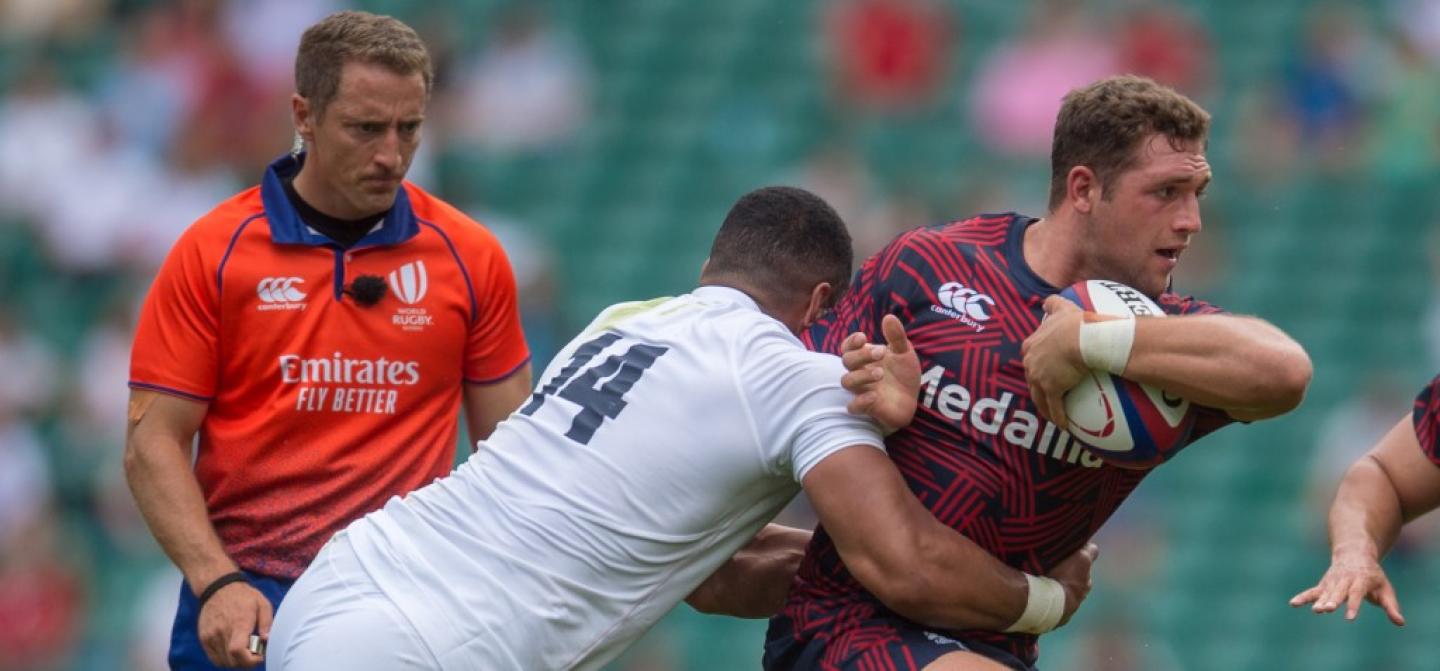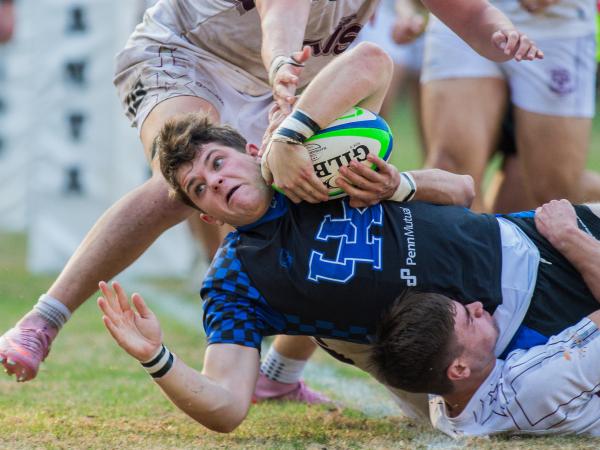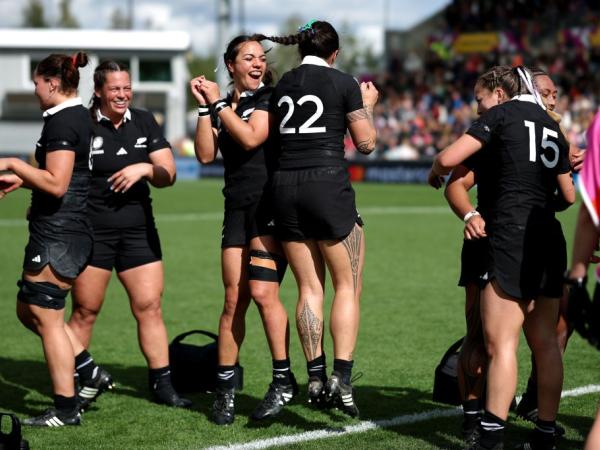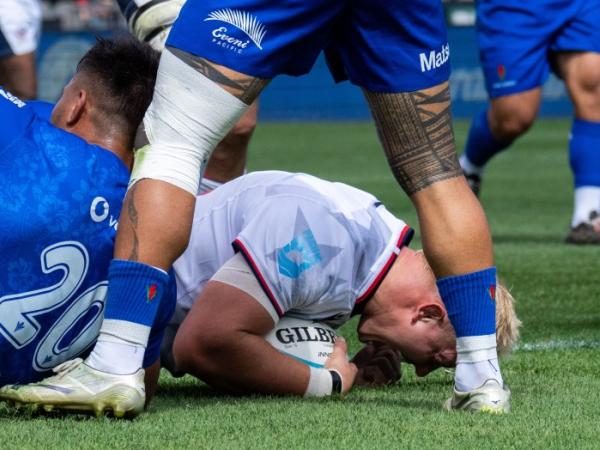Andrew Brace of Ireland put in a very solid showing as referee of the USA vs England test on July 4th.
Brace, from Ireland, handled the entire game with a calm demeanor, and, critically for the USA, did not approach his decisions (generally) with a pre-arranged notion of who knew what they were doing.
There were five moments that proved relatively important for the USA fortunes and, ultimately, Brace got these decisions right. Here’s a look:
1. The first scrum penalty. It’s easy to just assume that the USA is at fault in the scrum. Brace didn’t do that, and awarded a penalty off the scrum at midfield early in the game. It was a fair call, established Brace as a fair arbiter, and Luke Carty banged it over from 50 meters.
2. The Hattingh hit. After the USA restarted flanker Riekert Hattingh and England fullback Freddie Steward player crashed into each other chasing the ball. Brace called a penalty against Hattingh and looked at the replay to see if it warranted a card, as it appeared at first as if Hattingh had tackled Steward in the air and slammed him to the ground.
But the replay showed that both players were going for the ball and, in fact, Hattingh (who’s leap must have been four or even four and-a-half inches) actually won the ball for the Eagles. Steward hitting the deck was incidental. Hattingh had not only not deserved a card, it wasn’t even a penalty.
“My initial decision was wrong," said Brace with admirable bluntness, and he apologized to the USA and awarded a scrum to the Eagles.
3. The maul Defense. The USA’s maul attack and defense was actually pretty great, and in one instance the USA No. 8 Cam Dolan grabbed the ballcarrier before an England maul was formed. Brace saw it, understood what had happened, let Dolan legally do his job, and that ultimately resulted in a turnover to the USA. Excellent attention to detail and fairness from Brace.
4. The Try That Wasn’t. What referees are generally doing now is letting a play go and then if they have to backtrack that’s easier than shrugging and apologizing for a try that never got scored. England appeared to score their eighth try under the posts, but USA captain Bryce Campbell politely asked Brace to check whether Mike Te’o had been tackled in the air.
Rather than tell Campbell to go pound sand, which many refs might have done, Brace did his job, delayed the conversion attempt, and checked the video. Indeed, Te’o had been tackled in the air. No try, penalty for the USA, and from there the Eagles ended up scoring.
5. The Try That Was. And they scored because Brace didn’t assume facts not in full evidence, and let play go. Mike Te’o broke through, fed Mika Kruse, who then send a ball back to Michael Baska. Now, Baska knew the ball was then batted down by an England player, so he played on, passed to Christian Dyer, and Dyer ran in to score.
Brilliant. But … to many it seemed like Baska had knocked the ball on. Brace, by letting the play finish, was then able to effect a just decision. Had it been a knock-on, it would have shown up with the TMO and the try would have been canceled, with a scrum to England. But had he called a knock-on and then found out he was wrong, he couldn’t then invent a try the USA had not scored.
In the end, it was shown that Baska not NOT knocked the ball on and the try was good. Brace, by letting the play go, had ensured the USA got the try they deserved.
Now, it’s worth noting that in this list there are two challenges in the air where Brace made the wrong call, and that’s a problem the USA and teams at their level have battled for years—a close play that the ref always seems to call in favor of the higher-profile team. You also wonder if Josh McNally, had he been playing for the USA when he deliberately knocked the ball out of the scrumhalf's hand, he'd have been yellow-carded.
But the use of the TMO, and Brace’s honesty in being willing to be wrong, allowed him to correct that, make it a fairer game, and the result was a close test match between two fairly close teams.
































































